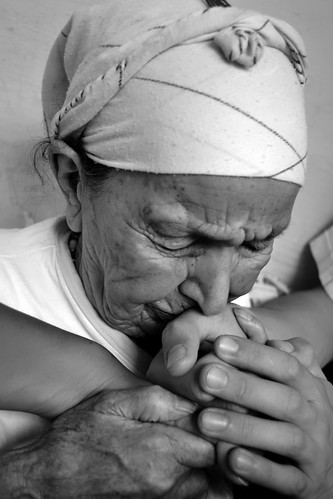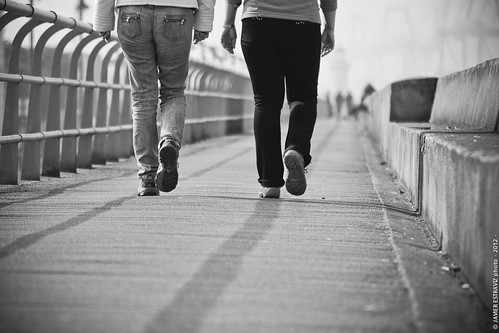I asked you to make a list of the people in your life whose opinions matter to you, where would you begin? Probably with your mother and father, if you’re fortunate enough to still have them in your life. Add your spouse or your significant other. Your brothers and sisters, perhaps, or your children. Maybe your boss, and certainly your closest friends.
Think of the people on that list for a moment, and how their opinion of you makes you feel. These people know you in all your many facets, and value you for all the things you are and do. Their good opinion of you has deepened and developed, in most cases, over many years. Their respect and even admiration, whether it’s for your sensitivity as a parent, your commitment as an employee, or your loyalty as a friend, is based on something real, something meaningful. While I believe your own good opinion of yourself is most important in life, knowing that people we cherish recognize our good qualities surrounds us with a kind of comfort and confidence that sustains us through tough or uncertain times.
I opened a letter recently that got me thinking about this. Marianne's note began, “JoAnna, I feel so worthless when I step on the scale and I’ve gained a pound. Or even when I’ve made healthy food choices all week long but I haven’t lost an ounce. I have so much weight to lose, and the scale makes me feel like a big, bloated number, not a person. I look in the mirror and I see my weight in big neon-sign numbers, and I’m filled with such disgust. I feel ready to give up on myself and toss that scale in the creek behind my house!”
I know how she feels. I remember how my heart used to just clench when I would climb on the doctor’s scale, and they’d have to move those big, heavy weights—200, 250, 300—in order to weigh me. I always hated those sliding scales, having to stand there while the nurse tried to get the scale to balance. And she’d push the little sliding weight up 10 pounds, then 20, 30, 40, 49. ... It always seemed like such a public humiliation for her to move the next big 50-pound weight into place. My eyes would tear up, and I would find myself wishing I could just sink into the floor and into oblivion.
The scale persuaded me, as it did Marianne, that I was no good. That number, whether it was 150 pounds in my twenties, 225 pounds in my thirties, or 300 pounds in my forties, defined me in a way that made me absolutely miserable. At that moment, the reality that I was a loving daughter, a caring parent, a successful businesswoman, a good friend—none of that mattered. The only opinion I could hear was that of the SCALE—and it told me that I was a big nothing.
I read a study recently that when you ask a man to describe himself, no matter what his actual measurements and physique, he’ll usually smile and say something like, “Well, I’ve got the same broad shoulders and strong back I had when I played football in high school. I’ve still got most of my hair, and oh, well, I could stand to lose a few pounds, but my body is pretty good.”
That’s why I say that positive attitude is more important than any other aspect of living a healthy life. And I don’t mean a positive attitude that begins when you reach your goal weight, or one that hinges on hearing your doctor say that your cholesterol count is oh-so-low. A positive attitude about the person in the mirror is maybe the most important tool to getting you where you want to go.
Recently, one of the discussions on my website asked, “What are some of your favorite things about Healthy Exchanges?” I read the responses with interest because I knew each person would have his or her own little victories and moments to cheer, even if they were a long way from reaching their weight- loss and healthy-living goals.
 One woman echoed my own experience when she wrote: “I like being able to walk through an airport without being so winded I have to stop to catch my breath every couple of gates. And not having to ask for a seat belt extension is wonderful.” Oh, boy, do I remember the humiliation I felt at needing a seat belt extension, and I still recall with pain the number of times I held my hand over the buckle so the flight attendant wouldn’t see I needed one. I risked my own life to cover my shame (I’m just grateful I survived without injury), because I couldn’t accept that the standard seat belt wasn’t long enough to hold me safely in my seat.
One woman echoed my own experience when she wrote: “I like being able to walk through an airport without being so winded I have to stop to catch my breath every couple of gates. And not having to ask for a seat belt extension is wonderful.” Oh, boy, do I remember the humiliation I felt at needing a seat belt extension, and I still recall with pain the number of times I held my hand over the buckle so the flight attendant wouldn’t see I needed one. I risked my own life to cover my shame (I’m just grateful I survived without injury), because I couldn’t accept that the standard seat belt wasn’t long enough to hold me safely in my seat.
The same woman went on to say how much she liked being able to buy clothes someplace besides out of the large-size catalogs. I always sewed my own clothes, so I didn’t suffer through store after store trying to find something in my large size to wear to a family occasion. But so many women have shared with me how hard it was to find self-acceptance when the retail clothing industry refused to make quality clothing in their sizes. (Thank goodness that’s less of a problem now. One thing I truly appreciate about QVC is their insistence since Day 1 that designers working for them provide a wide selection of well-made clothing for women up to size 3X. The large sizes are always the first to sell out, so it’s clearly good business too!)
But perhaps my favorite line from her note is this: “I like liking myself the way I am today and knowing I can be better tomorrow.” YES! For it’s only by liking ourselves today that we can work toward our goals of better health. And only by accepting ourselves as we are now can we strive toward a better tomorrow.
Now, I know that it’s not easy to admit to liking yourself NOW, when your body is heavier than you’d like it to be. It’s much easier to be critical, to be negative and even disgusted by your “extra” flesh. And I’m not saying you have to love and make friends with your poundage, since yes, you are doing all you can to bid it farewell! But you can like who you are as a person without loving absolutely every inch of you and your pet. (In fact, you’ve got to, in order to commit to real change!) And loving who you are is probably the best first step in learning to love every inch of the healthy body that is your goal!
Most of us have bad memories about seeing ourselves in photographs and discovering just how “fat” we look (or feeling as if we are fat) or how much worse the problem is than we’ve been willing to believe. But you should know that it’s not just overweight people who get depressed about how they look in pictures. Television is a notoriously unflattering medium (they say it puts at least ten pounds on you!), which could explain why the stars of television shows seem to keep getting skinnier and skinner (and scarier and scarier, really!). Those bright lights can make you look older, too—no wonder radio feels less stressful for authors promoting their books!
But seeing yourself as you are isn’t just about facing up to how you appear in a store window or a home video. It’s more about loving the person inside the flesh, the person of heart and soul who might appear to the world to have a hundred pounds to lose, but who also is intelligent, kind, and dedicated to her career and her family. Accepting yourself, extra pounds and inches and all, is a vital element in developing the kind of positive attitude that delivers long-term results!
I remember reading an article that suggested to people who frequently overate that they sit naked in front of a mirror while dining. (I imagine the advice was geared to single women, as it’s tough to imagine propping up a mirror at your kitchen table and gobbling down a sandwich while hoping and praying that your kids or your husband or your mother-in-law didn’t show up unannounced!) The idea was that if you could see yourself in the middle of “bad behavior,” you’d be so grossed out by your body and your actions that you’d change.
The only problem is, disgust and depression aren’t really all that motivating, at least not past the first few desperate moments!
And they’re not likely to be the ingredients that persuade you to make an enduring lifestyle change. Go on a starvation diet, maybe. Lock yourself in your bathroom and refuse to emerge until you’re a size 10, sure. But when you’re looking for the kind of encouragement that will sustain you through your struggles to live in a healthier way, demoralizing yourself with such negative images is more likely to backfire. You feel more hopeless than inspired, and you figure that one more cake donut won’t make any difference.
The mirror that matters is not the full-length one that hangs on your bedroom wall. It’s not the three-way tormentor in the dressing room of your favorite department store. And it’s not even the reflection in the eyes of critical friends and relatives.
The mirror that matters most is the one that lets you see inside the skin. It’s the magical motivating mirror that tells you that you’re not a lost cause, that you’re not a hopeless case, that you’re not a “loser” in the game of life.
That mirror reflects your true self, the person who has taken on many difficult tasks in life and succeeded in them. That mirror sees what the others can’t, that you’re a work in progress and not an image frozen in time. If you can learn to accept that vision of yourself, you’ve got a much better chance to make the physical changes you’re working for.
It feels good to belong, to fit in, to be part of something bigger than yourself. It s true whether you re in your teens or in your eighties. You re probably already part of several communities, beginning with your family. You might add to the list: your class at school, your office mates, your gym buddies, your fellow hospital volunteers, the group that decorates the church sanctuary every week. Some people are natural leaders; others seem to be natural joiners, making time for all kinds of group activities. But others need a little push to get involved. Perhaps they re shy, or recently widowed, or feeling isolated, with small children and a husband on the road (as I often felt when Cliff worked as a long distance trucker). Maybe they re new in town, or feeling bereft after a youngest child has left for college. Or possibly they re feeling stuck. (Remember how it feels to be in a rut?)
That s why I believe one of the most positive actions you can take in life is to reach out to someone else and bring em along!
I saw evidence of this in my own life when I first began creating Healthy Exchanges recipes. I would stir up healthy versions of foods I loved, and I d bring them to my office to heat up in the microwave. As my colleagues smelled those good smells and saw that my new way of eating was helping me get healthy and feel good about myself, they asked what I was doing. Instead of keeping it to myself, I reached out and shared my recipes, shared what I d learned about moderate exercise and making lifestyle changes. Most of all, I talked about how a change in attitude from negative to positive was transforming my life in ways I hadn t imagined!
I discovered something remarkable that reaching out to others and sharing what worked for me helped me at the same time I was helping others. I didn t push it on anyone. I ve never been known for a hard sell, but I found that talking about what I was doing strengthened my commitment to my new lifestyle. At the same time, my healthy recipes and advice were helping my friends accomplish their own goals. Talk about a win-win situation!
I kept this all in mind when I created Healthy Exchanges, the company. I asked my staff to treat the people who purchased my cookbooks and the subscribers to my newsletter as family members, not just customers. I wanted my readers to feel like an important part of what I was doing. I emphasized the idea of a Healthy Exchanges family because thinking of it that way helped me help others. Inviting my readers participation and reactions, answering phone calls, and replying to e-mail brought us together on the journey to good health. I kept looking for ways to reach out and share what I d learned, from stirring up recipes on the radio to speaking at hospitals and support groups. I got as much satisfaction from visiting with one farm wife from rural Illinois as I did appearing on QVC before a television audience of millions, because the principle was the same: Reaching out to someone else makes life better for both of us! I do a lot of my best work alone. I create recipes in the motor home while Cliff is up front driving and listening to the radio. I write my newsletter sitting at the computer in the early hours of the morning, after I ve returned from a sunrise walk that filled my soul with pleasure, my heart with fresh energy, and my mind with new ideas.
Each year I go out on the road with Cliff in the RV for weeks at a time. I visit bookstores and radio stations, speak to groups and appear on TV. It s during those times that I meet my readers, my Healthy Exchange family members, and get to hear from their own lips how I ve helped them make healthy changes or influenced them to get more exercise. It s exhausting and energizing at the same time! It s also immeasurably rewarding to learn that my ideas and words have touched each of them personally.
I grew up in a very small town, and I still live in one, so discovering that I ve connected with so many people from all over the world still astonishes me. And all year round, between the road trips, the post office keeps delivering sacks of letters that tell me so many stories of people s lives. Plus, through the magic of e-mail, I hear from hundreds more every week!
But even with all the correspondence I ve received over the years, each new encounter or hastily scribbled note feels like the first. I feel a wonderful rush of satisfaction in the knowledge that
I 've had a small part in transforming a life. Reaching out does that for you, whether you re volunteering at a Red Cross blood drive or helping out at your child s school. It s empowering in a way you may not expect, and even if you don t feel you have much to offer, you do. When you remind a nervous young man that his single pint of blood may help save five lives, you ll make him feel like a hero (and with luck get him started on a lifelong habit!). When you listen closely to what a child says, that child will grow and flourish in the warm glow of your respect and attention. See how easy that was? It s a feeling you ll grow to like, and one you ll want to pass on to your friends and family.
I have always been grateful to God for the gift of life, but I have also discovered that through my work, I can share His most gracious gift with others. For if someone gets the tools and the strength to pursue a healthy lifestyle because of me, the gift of a better quality of life (and a longer life, too, I hope) blesses the giver as it blesses the one who receives. There is a Bible passage I have always liked that says: Lord, make me an instrument of thy peace. Make me an instrument... I consider it my greatest accomplishment (after raising three wonderful kids!) to be an instrument of God-given good health, and I hope that I will always be blessed with that great joy.
Joy and humility filled me when a woman rushed up to me one evening, squeezed my hand, and said, JoAnna, you literally saved my life. She was a diabetic, her blood sugar had been out of control, and her health compromised. She began cooking the Healthy Exchanges way ( food my husband would eat, she said, smiling) and in just months her condition was under control, she d lost some weight, and she felt better than she had in years.
It felt so good. There s almost no way to describe the depth of emotion I feel at being able to help people help themselves. This past year has been so chaotic and at times difficult. I ve been so busy, wondering if I was ever going to get it all done, and if it was all worth it anyway. So when this woman gave me the credit, I thanked her, but then I thanked God for the opportunity to make such a powerful difference in the world.
You may not feel that you have all that much to offer at this time in your life; maybe your self-esteem is a little shaky or you tend to be shy. So reaching out to others may take a real leap of faith in your value as a person. It doesn t require a college degree or years of professional experience to offer a couple of hours a week as a baby cuddler in a hospital, for instance. It s been proved that even the tiniest, sickest babies who are held and rocked for an extra hour a day thrive in every physical, mental, and emotional way there is. Even if you re feeling insecure about yourself, those babies won t care. They just respond to the affection that s offered.
If making the connection face-to-face isn t something you feel you can manage right now, perhaps you will decide to reach out in a more anonymous way. You can still make someone feel better about his or her life by writing to a soldier overseas, or gathering school supplies for a distant village classroom that has very little. And via the Internet, you can participate by writing messages of hope to strangers who need a friendly word to get through a crisis. I heard the other day from Jennie, who d been enjoying the opportunity to offer advice and comfort on a weight- loss board. Then one night, she read a note from a woman who d been spending days and nights at the hospital with her very ill son. Feeling completely isolated and alone, she d logged on, hoping to find some encouragement to return to a weight-loss support group and she d found my friend Jennie, who d nursed her own daughter through Hodgkin s disease just a few years earlier. All the pain I d gone through back then now had a purpose, to enable me to reach out to this woman. With me she could open up about the fear and anger she felt, and most of all the helplessness. We exchanged e-mail addresses and we re going to keep in touch. I m so happy to be able to be a kind of lifeline for her. It s such a blessing to be able to help someone else.
exercises to lose weight



No comments:
Post a Comment